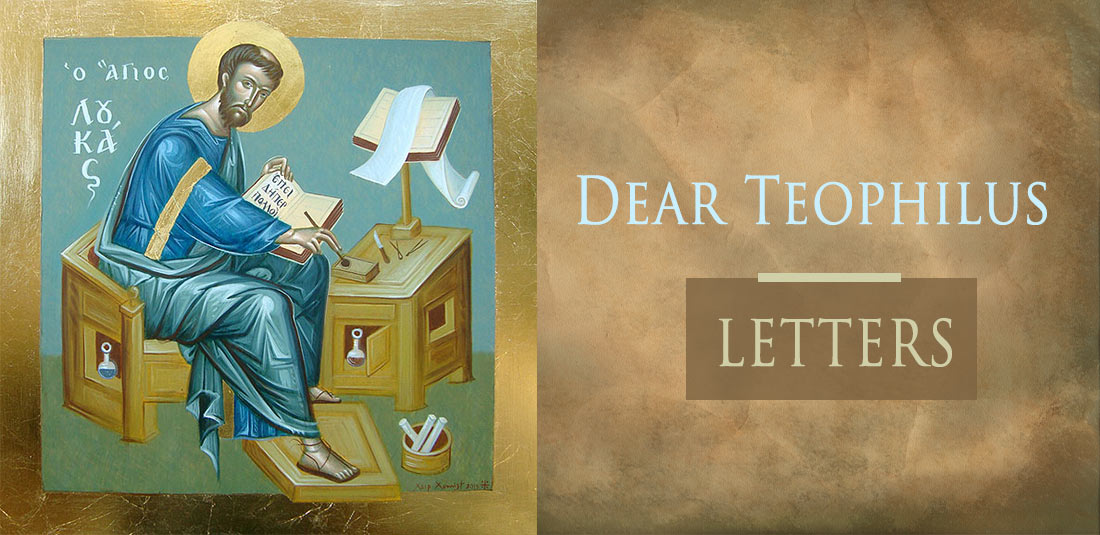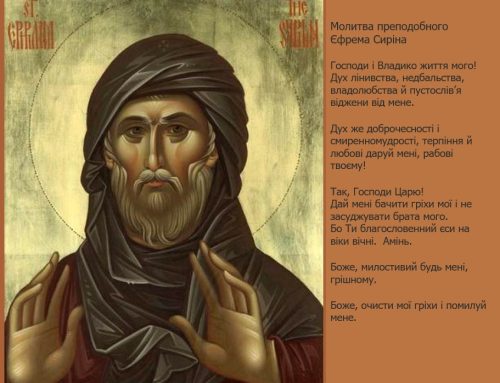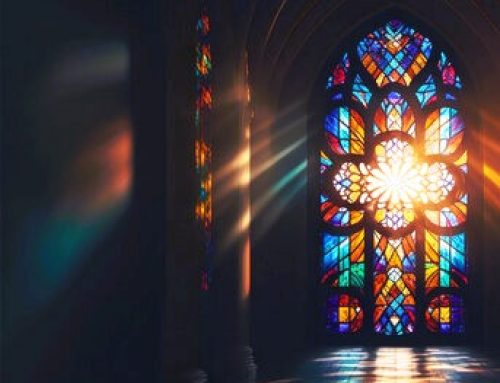Dear Theophilus , (Letter 86. )
To view humans as isolated, individual units is faulty and this is where the concept of the Church comes in. We often think of a person as an individual separated from others, but this is not the way that Christianity considers the matter. Central in all of this is the dogma of the Trinity and our salvation through the Church.
I know that when I raise the topic of the Church, questions arise, in light of the scandals that have racked the Church. The question sometimes arises – how can we call the Church holy in light of the revelations that have come forth recently? Lest we think of these revelations and judgements of the Church’s behavior as recent I want to draw your attention to a comment made in the 13th. century. William of Auvergne, bishop of Paris, decried the barbarism within the Church. “We are no longer dealing with a bride but with a monster of terrible deformity and ferocity,” wrote William.
So, what are we to make of the statement ‘Holy Church’? I think we would all agree that the Church is indeed made up of fallible and sinful members. Therefore, the term holy does not apply in a literal sense to each and every member of the Church. The Church is Holy because this is where God domiciles Himself in the world. It is the gifts and sacraments that are present in the Church and are administered by the Church, that are holy. We want a Church that is totally untainted by sin and fallenness but that is simply not the way it is in this fallen world.
The Church highlights the fact that God continuously plunges into human wretchedness and dwells there so as to transform and liberate humanity. The criticism was often raised before Christ – why do you associate with those who are seen as the dregs of society? And Christ gives the answer – a doctor comes to heal those who are ill and in need.
But there is something additional about the covenant made between God and the Church. In all the other covenants made between God and man there is a clause whereby the covenant is nullified if man does not uphold his side of the agreement. In the new covenant with Jesus, there is no such threat. The New Covenant is characterized by the fact that its validity does not rest on the reciprocal keeping of the agreement. It is, amazingly, effective even in the face of man’s faithlessness. It is a strong and irrevocable statement and assertion of God’s love for humanity. It is the expression of the invincibility of God’s enduring love and it is this, that forms the basis for the holiness of the Church.
The Church is the form that God has chosen to enact the salvation of humanity and creation as a whole. Our idea of salvation tends to be very individualistic where salvation is a concern of mine and only mine and yours is yours alone, and so on. But salvation is much more encompassing than just a simple call to look at me and see what happens to me. There is a ‘corporate’ component of salvation and this is what the existence of the Church points out to us.
When we talk about man it is said in the Scriptures that man is made in the image and likeness of God. The meaning of this became clearer with Christ’s incarnation because what the followers of Christ came to see was that God is not a simple monad but the best description of God is through the concept of the Trinity.
It is sometimes felt by believers that the idea of the triune God simply complicates matters and is something that is extraneous to our faith. It is felt that this is simply an unnecessary complication that is hard to grasp and therefore can be omitted. This is a faulty way of looking at God and it is not true because the dogma of the Trinity tells us something important about God and about humanity. Granted, it is not easy to grasp this doctrine, but it immeasurably enriches our faith and our concept of God.
For example, we are told that God is love but then the question arises – how can God be love if He is a monad? Whom does He love? Is God involved in self-love? This is not something that we hold up as a goal for even ourselves. The answer that comes to us is that God is triune and there is love amongst the three persons. God loves even before creation and He does not need anything outside of Him to love. Moreover, this love exists as a ‘oneness’ that persists in the threeness.
Now if God has this kind of being, and man is made in the image of God, what does this say about man? In our fallen world we experience our being separate from other human beings and this separateness brings on a variety of sins such as pride, anger, envy and many more self-focusing failures. What we are called to achieve is a unity with all of humanity but at the same time maintaining our personhood, our identity as to who we are. In other words, we are called upon to bear the image of the trinity in our humanity.
Man, in the understanding of our faith, is the whole of humanity united in love and thereby achieving one of the purposes for God’s creation of mankind. Mankind had fallen through sin and failed to live up to its intended goal. And therefore, a new creation, a sort of re-creation, had to occur and this happened through the Incarnation. The beginning of the formation of this new creation, this new man, is in the Church, which is called the body of Christ. The Church is not simply some institution with a bureaucracy and all kinds of rules and regulations, but a living organism that is central in enacting the unity of all humanity into the one ‘human being’. There is no question here of exclusion based on racial background, on ethnic origins or any other differences that are there amongst people. They are called upon to be one and it is through this unity that we are to show the image of God in creation
Every single person has a role to play in this imago Dei and it is incomplete if even one member is missing. We are all integral parts of this new creation – man – and we are called upon to join by being forgiving and accepting of others and by not judging them. It was Gregory of Nyssa who stated that the creation of man is not complete until all members of humanity have come into being. Creation is still happening.
The discussion we’ve had in this letter also addresses a common observation of how people react to the Church. One will often hear words to the effect that I do not need to go to Church – I can just as easily pray at home. Prayer at home is good but it is not the whole story as the points made above indicate. The Church is the place where our salvation is enacted in concert with other believers and in this way we mirror the triune God that we celebrate and worship. The juridical concept of salvation – we are judged on our acts and will be found guilty or innocent – is really a caricature of what salvation means and what it means to be human. I simply want to point out the following prayer that is said during the liturgical services: “Remit, pardon and forgive our sins, O God, whether voluntary or involuntary…whether committed in knowledge or in ignorance….” How can we be held liable in a juridical sense for sins committed outside our will, and our eternal destiny is to be determined by this?
I know what your argument will be – then it doesn’t matter what we do since it will all be annulled. This is an extreme conclusion to draw because judgement is mentioned in the scriptures, and often, and we have to take this seriously. One possible conclusion we can draw from the concept of judgement is that our actions do matter, we are taken seriously and our behavior does have repercussions. Through judgement, our human dignity is honored. However, we cannot say that our sins can outweigh God’s mercy and love for us because then evil will have the final word in creation.
We do sin, and we do need to repent and it is in the Church that we are offered the capacity for repentance and absolution. And even more importantly, we are offered the opportunity to acquire eternal life through the sacrament of the Eucharist, again, something that we cannot do at home by ourselves. The Church calls on us to become members of Christ’s body and through this complete one of the main goals of creation. And because the Church accepts us, sinners, and does not judge us or push us away, she is sometimes seen as far removed from holiness. Yes her members are sinners but it couldn’t be otherwise.
Sincerely,
Bar-Abbas.






